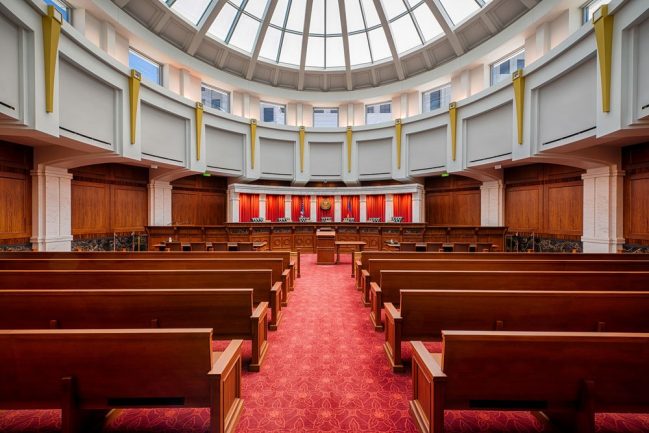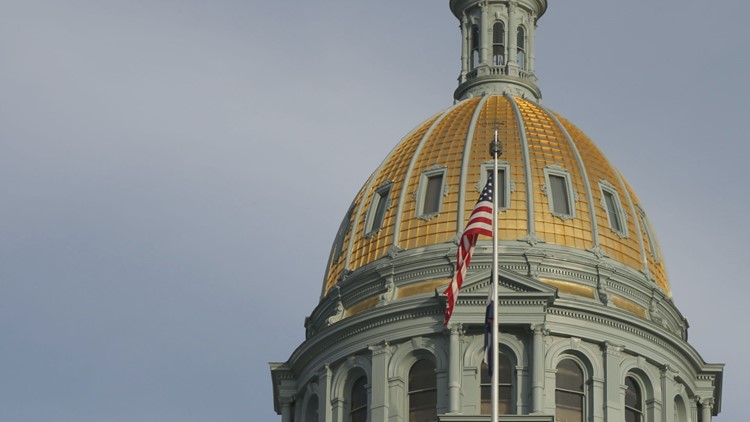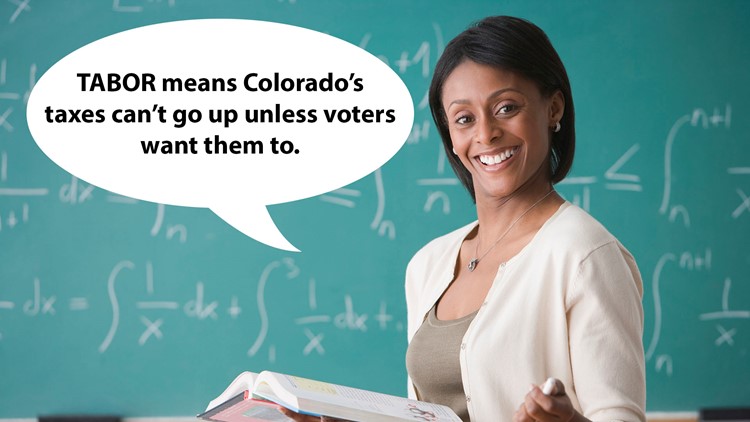Colorado’s TABOR amendment getting fresh scrutiny amid funding discussions, proposed ballot measures
DENVER — Whether you’ve lived in Colorado for a short time, or your entire life, you’ve probably heard about what’s known as TABOR: The Taxpayer’s Bill of Rights.
“It ensures that government cannot grow beyond what the people want it to do,” said Michael Fields of the conservative-leaning group Americans for Prosperity.
Fields argues TABOR leads to smart spending with an existing budget, prevents government from getting out of control and gives people of Colorado the power to decide when it’s appropriate to raise taxes.
“I think you make the case to the people,” Fields said. “If you want to invest in something more, then go make the case to the people – convince them that they need more revenue and that’ll pass.”
But there’s another side to TABOR.
“It’s not something good to have on our books. It’s actually hindered our ability as a state to do many things,” said TABOR opponent Amie Baca-Oehlert, of the Colorado Education Association.
She says she feels TABOR is a roadblock for lawmakers that prevents them from making responsible spending decisions in places where it is needed most, like Colorado’s schools.
“That just doesn’t seem right in a state with such a fast-growing economy,” she said.
But Colorado needs money to fix our ailing roads and bridges. So a push is underway to convince voters to approve a sales tax hike this November. Educators are also pushing a tax increase to help public schools after a 2013 $1 billion proposed tax increase to pay for school funding was rejected by voters.
On Monday, the Colorado Supreme Court ruled that an Aspen grocery bag surcharge was not a tax and thus did not fall under TABOR – the second successful challenge in recent months.
But what’s next? For the moment TABOR is here to stay. In order for it to be reversed completely – we as Coloradans would have vote to change it.


 Editor’s Note: Denver7 360 stories explore multiple sides of the topics that matter most to Coloradans, bringing in different perspectives so you can make up your own mind about the issues. To comment on this or other 360 stories, email us at
Editor’s Note: Denver7 360 stories explore multiple sides of the topics that matter most to Coloradans, bringing in different perspectives so you can make up your own mind about the issues. To comment on this or other 360 stories, email us at 











